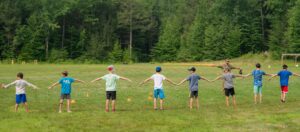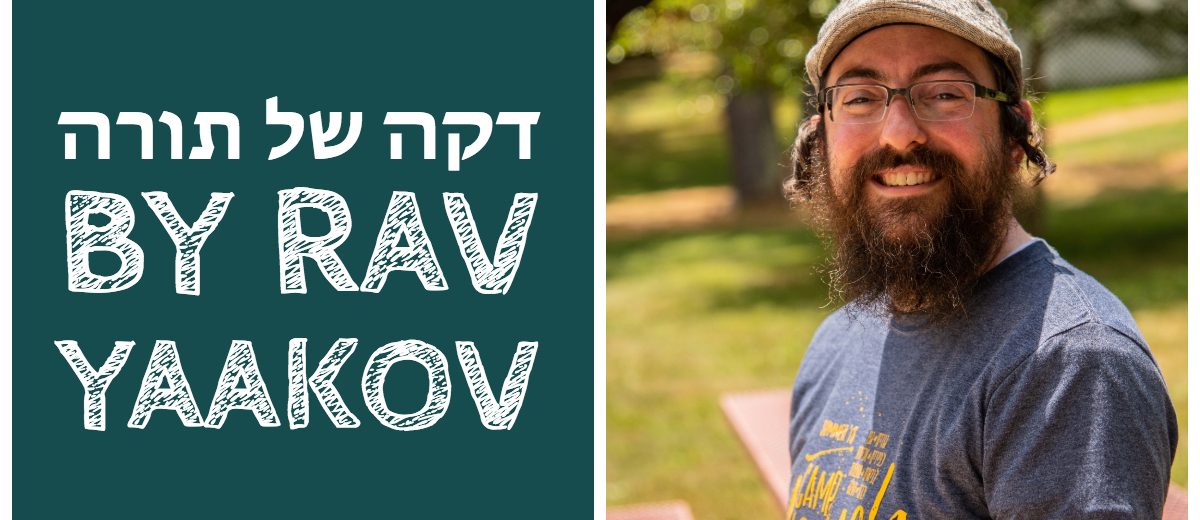Parshat Ki Tavo – So Long, and Thanks for All the Fruit
Hello Yavneh family! The summer just flew by, and now it’s already back to school time. First of all, I want to thank all of you for an absolutely incredible first summer at Yavneh. It was a life-changing experience for me and my whole family. We’re so grateful to be part of this amazing community.
In this week’s parsha, God gives the Jewish people the mitzvah of bikkurim. The Israelites were commanded that when they settled in Israel, they were to bring the first fruits of seven particular species which grow in Israel to the Beit HaMikdash in Jerusalem, an offering to God through the Kohanim. The entire nation of Israel would bring their first fruit, from wherever they were in the country, in a time period between Shavuot in the spring and the end of the harvest at the start of winter. When each person brought their fruit they would thank God, saying a verse we recognize from the seder:
And you shall lift your voice and say before the Lord your God: An Aramean tried to destroy my father, and he went down to Egypt. And he lived there in scant number, and he became there a great, mighty, and populous nation. And Egypt was evil to us, and they afflicted us, and they placed us under hard labor. And we cried out to God. And God heard our voices and saw our affliction, our toil, and our oppression. And God took us out of Egypt with a strong hand and an outstretched arm, and with great fear, and with signs and with wonders. And God brought us to this place, and gave us this land, a land flowing with milk and honey.
The mitzvah of bikkurim at first seems odd — you have fruit, you have travel, you have a benediction tracing the Israelites entire history up to that point, beginning with Lavan (the “Aramean,” according to Rashi) persecuting Yaakov (“my father”). What unites these actions, and what is bikkurim trying to teach us?
The essence of the mitzvah of bikkurim is gratitude: expressing our appreciation to God for what we have. This can’t be done in half measures. No — we have to take the first of our fruits, after planting our trees years in the past and waiting so long for anything to grow. We have to go on a journey to Jerusalem, and we have to dedicate the fruit with a recitation that connects our gratitude to that of our entire people for our very existence. Gratitude is serious business. We can’t just say “thank you.” We have to live “thank you.”
This mitzvah coincides with the beginning of the holiest time of the Jewish calendar because we can’t stand before God and our community in shul on Rosh Hashanah and Yom Kippur if we haven’t given of ourselves in showing our thanks.
All summer, all of us were surrounded by friends, madrichim, and staff members who helped us grow, as together we built our Yavneh community with everyone doing their part. This week, consider calling or sending a message to someone who helped you out this summer, even in a small way. Say thank you. Then take that feeling of gratitude and carry it with you into the year.
Questions for the Shabbat table:
- What are you grateful for from this summer?
- As we move towards the yamim nora’im, how are you living your “thank you?”




